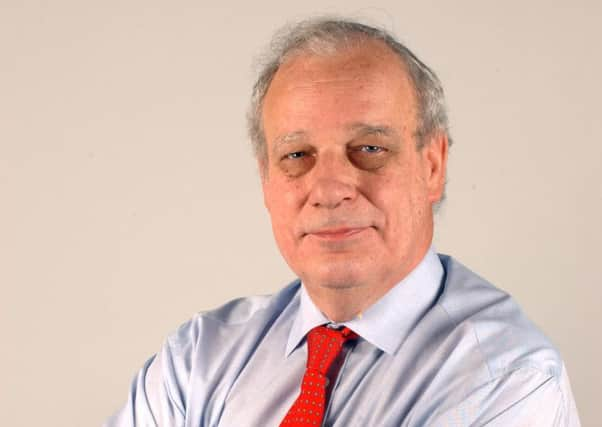Comment: There’s no quick fix in sight for Tesco


Now, it seems, the business cannot slim down fast enough. New chief executive Dave Lewis is engaged in a major programme of property sales and business disposals. Shares in Tesco plunged initially on the news last week, but subsequently rallied. Could this oil tanker of a business now be on the turn?
Reading Mr Lewis’ statement I was reminded of the day in 1991 when Archie Norman took control of Asda. The near-bankrupt business was in a dire state. Norman was the only one to apply for the job. The “kitchen sink” press conference I attended was dramatic: property values were slashed, stores were to be closed, expansion halted – and the dividend cut. “Don’t expect improvement any time soon” was the dire warning. “This company has major problems”.
Advertisement
Hide AdAdvertisement
Hide AdThe analysts were dumb-struck – but they were hugely impressed by the dark candour of Archie Norman’s appraisal. Barely had they got back to their offices than they were buying Asda shares for their personal accounts.
Archie Norman was right – it did take time. But together with Alan Leighton he made Asda the second largest food chain in the UK before it was sold to Wal-Mart in June 1999.
It is dreams of kitchen sink turnarounds like this that have already inspired investors to lift shares in Tesco 38 per cent higher since December. They now stand at 224.8p against a 12-month low of 164p.
And that, in my view, is high enough for now, given the deep-seated nature of Tesco’s problems.
It may still be the king of the high street with 3,500 UK stores – and store space is continuing to rise.
But competition from discounters Aldi and Lidl is intensifying, while Waitrose is capturing ever more of the affluent middle. Investors will be cautious about Tesco numbers after that £208 million profits over-statement. Group debt has risen to £21.7bn and there is a £3.8bn pension deficit to tackle.
Previous declarations to boost store staff numbers and improve lay-out yielded little. And consumer habits and preferences continue to change. Remember also that Tesco is now without a dividend – and that is unlikely to change any time soon.
For these reasons, even though Mr Lewis is furiously trying to de-clutter the Tesco problem basket, this will be no quick check-out for investors.
HSBC is a law unto itself
Advertisement
Hide AdAdvertisement
Hide AdLess than two weeks to polling day and banking giant HSBC announces it is pondering an exit from the UK because of over-burdensome regulation. Doubtless the continuing “bash the bankers” election rhetoric will not have helped.
Its chairman Douglas Flint told the group’s annual meeting that it was responding to “regulatory and structural reforms” in the industry in the wake of the financial crisis.
Now a wild guessing game has started as to where HSBC might move: Hong Kong? Luxembourg? Singapore? The US?
I would not want HSBC to leave. It provides sound bank services in the main and it has brought in tens of millions of pounds in much needed tax revenue for the Exchequer.
But here’s some advice that I believe would genuinely help the board, the bank and its shareholders: try obeying the law. It’s not just that many of HSBC’s problems have been unavoidable. They have been ruinously self-inflicted. Last year HSBC racked up a total of £2.4bn in fines, settlements, UK customer redress and associated provisions.
These included a £620m provision for PPI compensation claims. Then there was the £400m penalty imposed by the US and UK authorities for rigging the foreign exchange market.
In December 2012 HSBC had to pay the US authorities $1.9bn (£1.2bn) in a settlement over money laundering. It has been fined $12.5m on charges that its Swiss-based private banking arm violated US securities laws.
The Financial Conduct Authority is now conducting an inquiry on whether HSBC has cleaned up its act after allegations that it helped wealthy clients evade taxes.
The UK has much to offer as a financial headquarters location. Chief among the attractions is an enviable rule of law. How much better off HSBC would now be had it shown more regard for it.